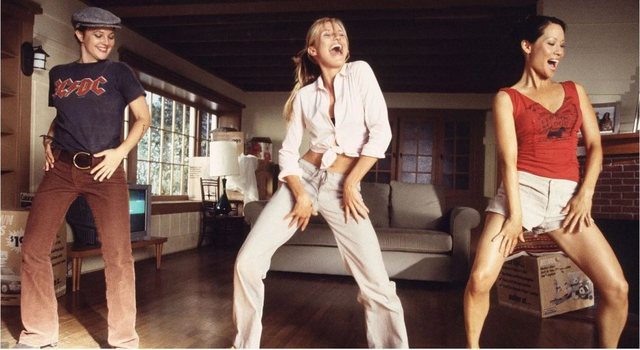
 Flash News
Flash News
Accident at "Shkalla e Tujanit", truck overturns in the middle of the road, driver injured
Vlora by-pass, work delays and cost increases
Milan are expected to give up on the transfer of Granit Xhaka
Inceneratori jashtë funksionit, përfshihet nga flakët fusha e mbetjeve në Elbasan
Accident on the Lezhë-Shëngjin axis, one injured

Cultural stereotypes have long suggested that women are more likely to seek romantic relationships, get married, and start families. This line of thinking implies that for women, being alone may be experienced as more problematic than for men.
In contrast, men are often described as more content with single life, finding fulfillment in work, hobbies, and personal independence.
But how much do these stereotypes match reality?
A study recently published in the journal Social Psychological and Personality Science by psychologists Elaine Hoan and Geoff MacDonald of the University of Toronto challenges traditional beliefs about gender roles and relationships. The study, titled “Sisters Are Doing It Their Own Way: Gender Differences in Singles’ Well-Being,” analyzed data from more than 6,000 single individuals over the age of 18 (average age: 32) who participated in 10 different studies.
The study results showed that single women reported higher levels of well-being compared to single men. They were more satisfied with their single status, felt less of a pressing need for a romantic partner, and experienced more sexual satisfaction.
Compared to men, single women showed a stronger link to personal life satisfaction and were more likely to enjoy their independence. Even when in romantic relationships, women reported greater satisfaction than men in their relationships, particularly in sexual and emotional terms – but not necessarily in personal life satisfaction.
Why might women be happier being single?
According to the authors, this gender divide in the experience of singleness can be explained for several reasons:
Richer social relationships: Women are more likely to cultivate deep emotional connections with friends and have a supportive social network even outside of a romantic relationship.
Less satisfying experience in heterosexual relationships: Women often take on the brunt of housework and caregiving duties in relationships, which can negatively impact their experience within the relationship.
Self-sufficiency and independence: For many women, especially those who have previously experienced marriage or cohabitation, singleness brings a sense of liberation and greater control over their personal lives.
As author Paula De Polo notes in an analysis for Psychology Today, “many previously married women feel relief after a breakup, no longer feeling the pressure to consistently give more than they receive.”
What about men? Are they less able to cope with being single?
Although the average findings show that single men report less satisfaction, it is not excluded that many men do well in the single life. Some of them value personal freedom, engage in professional development, cultivate hobbies, and maintain healthy social connections. They do not necessarily depend on a partner for emotional or social stability.
However, the authors note that the social and psychological risks for single men are higher, especially for those who have not developed self-management skills in everyday life or who do not have strong social networks.
cONcluSiON
This latest study contributes to a more balanced and evidence-based understanding of single life for both genders. The stereotype that women are more desperate for relationships and men are more content alone is not clearly supported by scientific data. In fact, it is exactly the opposite: women, on average, feel better when they are single, enjoy their independence, and feel fulfilled even without a romantic relationship.
This discovery invites a review of traditional perceptions of love, marriage, and the need for partnership, paving the way for a more nuanced understanding of human well-being beyond marital status.
Latest news








Golem and Qerret without water at the peak of the tourist season
2025-07-01 21:09:32

Euractiv: Italy-Albania migrant deal faces biggest legal challenge yet
2025-07-01 20:53:38
BIRN: Brataj and Fevziu victims of a 'deepfake' on Facebook
2025-07-01 20:44:00

Vlora by-pass, work delays and cost increases
2025-07-01 20:24:29



Milan are expected to give up on the transfer of Granit Xhaka
2025-07-01 19:41:25


The silent but rapid fading of the towers' euphoria
2025-07-01 18:58:07
Donald Trump's daughter says 'goodbye' to June with photos from Vlora
2025-07-01 18:48:47

Tirana vote recount, Alimehmeti: CEC defended manipulation
2025-07-01 18:15:05

Left Flamurtari, striker signs with another Albanian club
2025-07-01 17:43:14
Accident on the Lezhë-Shëngjin axis, one injured
2025-07-01 17:19:35
June temperature records, Italy limits outdoor work
2025-07-01 17:03:15

Meet Kozeta Miliku, named one of the top five scientists in Canada
2025-07-01 16:32:12
"Arsonist" arrested for repeatedly setting fires in Vlora (NAME)
2025-07-01 16:29:45

The ecological integrity of the Vjosa River risks remaining on paper
2025-07-01 16:09:40
Heat Headache/ Causes, Symptoms and Measures You Should Take
2025-07-01 16:01:13
UN: The world must learn to live with heat waves
2025-07-01 15:54:50

Three cars collide in Tirana, one of them catches fire
2025-07-01 15:38:16

Shehu: Whoever doesn't want Berisha, doesn't want the opposition 'war'!
2025-07-01 15:19:20
Berisha requests the OSCE Assembly: Help my nation vote freely
2025-07-01 15:11:46
Be careful with medications: Some of them can harm your sex life
2025-07-01 15:00:32

'Golden Bullet'/ Lawyers leave the courtroom, Altin Ndoc's trial postponed again
2025-07-01 14:44:52
EU changes leadership, Kosovo in a number of places
2025-07-01 14:40:01
Should we drink a lot of water? Experts are surprised: You risk hyponatremia
2025-07-01 14:30:20



Lëpusha beyond Rama's postcards: A village that is being silently abandoned
2025-07-01 13:41:56
Scorching temperatures in France close the Eiffel Tower
2025-07-01 13:29:35
Media: China, Iran and North Korea, a threat to European security
2025-07-01 13:20:12
Albania drops in global index: Less calm, more insecure
2025-07-01 13:09:35
Road collapses, 5 villages in Martanesh risk being isolated
2025-07-01 13:03:04

Këlliçi: Opposition action to be decided in September
2025-07-01 12:48:49
Four tips for coping with the heat wave
2025-07-01 12:38:53
Car hits pedestrian on Transbalkan road
2025-07-01 12:27:09
Authors of 9 robberies, Erjon Sopoti and Abdullah Zyberi arrested
2025-07-01 12:15:56

He abused his minor daughter, this is a 36-year-old man in custody in Fier
2025-07-01 11:50:34
The constitution of the Kosovo Assembly fails for the 40th time
2025-07-01 11:40:08




EU confirms support for the Western Balkans
2025-07-01 10:50:45
Serious in Fier! Father sexually abuses his minor daughter
2025-07-01 10:32:33
One year since the passing of the colossus of Albanian literature, Ismail Kadare
2025-07-01 10:25:26


They supplied the 'spaçators' with drugs, two young men are arrested in Tirana
2025-07-01 09:54:09
Europe is "scorching", how dangerous are high temperatures?
2025-07-01 09:48:56


Nigel Farage in Albania: but why?
2025-07-01 09:13:12
Xama: The "Partizani" dossier is quite weak and without facts!
2025-07-01 09:04:47

Foreign exchange, the rate at which foreign currencies are sold and bought
2025-07-01 08:35:39
Fabricators again warn of factory closures and job cuts
2025-07-01 08:21:30
Horoscope, what do the stars have in store for you today?
2025-07-01 08:08:59
Scorching hot, temperatures reaching 40°C
2025-07-01 07:57:12
Morning Post/ In 2 lines: What mattered yesterday in Albania
2025-07-01 07:42:59
Recount after May 11, Braho: I had no expectations for massive vote trafficking
2025-06-30 22:54:18

Second hearing on the protected areas law, Zhupa: Unconstitutional and dangerous
2025-06-30 22:18:46



Israel-Iran conflict, Bushati: Albanians should be concerned
2025-06-30 21:32:42

Fuga: Journalism in Albania today in severe crisis
2025-06-30 21:07:11
"There is no room for panic"/ Moore: Serbia does not dare to attack Kosovo!
2025-06-30 20:49:53

Temperatures above 40 degrees, France closes nuclear plants and schools
2025-06-30 20:28:42
Lavrov: NATO is risking self-destruction with new military budget
2025-06-30 20:13:54
Turkey against the "Bektashi state" in Albania: Give up this idea!
2025-06-30 20:03:24

Accused of sexual abuse, producer Diddy awaits court decision
2025-06-30 19:40:44


